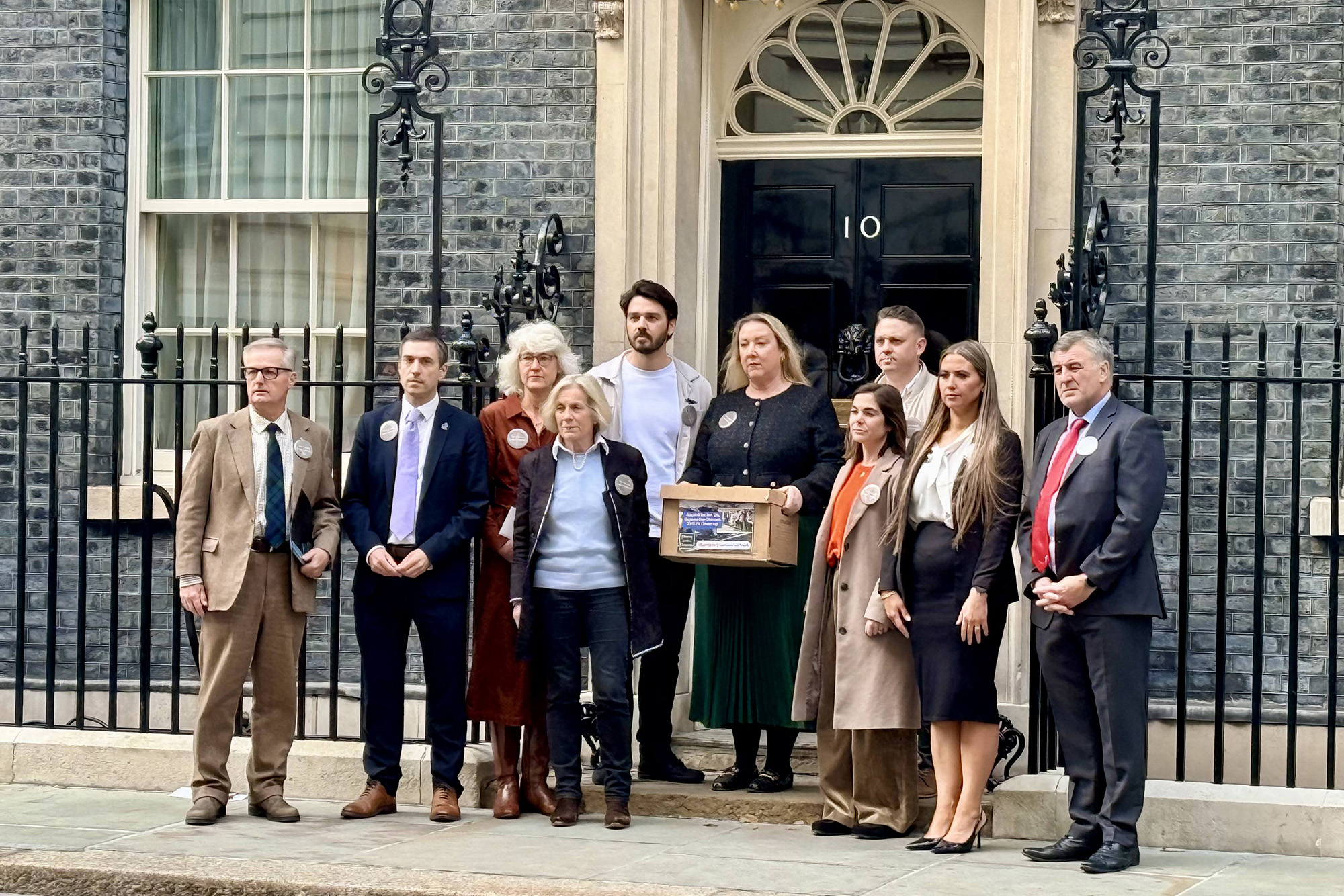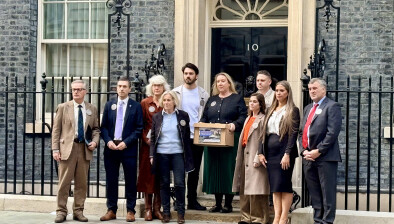UK government ministers to meet Chinook crash families

Pictured: The Chinook disaster families at 10 Downing Street in October 2025.
UK government ministers will meet next month with the families of those killed in the 1994 Chinook helicopter disaster, who are campaigning for transparency and a judge-led public inquiry.
A total of 29 service personnel died when the helicopter crashed on the Mull of Kintyre en route from Northern Ireland to Scotland in what remains the RAF’s worst peacetime accident.
The Chinook Justice Campaign, made up of bereaved families, is currently pursuing a judicial review against the Ministry of Defence (MoD) over its failure to release files on the crash.
Four junior ministers — Lord Coaker, Al Carns and Louise Sandher-Jones in the MoD and victims’ minister Alex Davies-Jones — will meet the families on Tuesday 16 December, it has now been confirmed.
However, the families are continuing to call for a meeting with the prime minister, Keir Starmer.
The Chinook Justice Campaign today welcomed the intervention of two experts in “ambiguous loss” who said the relatives of the 29 victims are living with a unique form of unresolved grief due to the withholding of information.
Dr Pauline Boss, professor emeritus at the University of Minnesota, who developed the theory of ambiguous loss, said: “I am so sorry to learn about the mystery surrounding this tragic crash and the ongoing, frozen trauma suffered by the families of those who died.
“Ambiguous loss is one of the most painful kinds of loss because you can’t make sense of it. This is an example of a case that doesn’t make sense, because information has been withheld.
“If you can’t make sense out of your loss, then you can’t cope with it. There is no such thing as closure.”
Social scientist Dr Simon Robins, a research advisor to the International Committee of the Red Cross and an expert in ambiguous loss, has written a paper for the Chinook Justice Campaign.
“The search for truth – ongoing despite the pilots being formally cleared in 2011 – has meant that families live with contradictory realities: their loved ones are gone, yet the truth about what happened remains contested and incomplete,” he said.
“This lack of recognition, and apparent dismissal of the loss of the families, prolongs suffering, complicating efforts to reconcile emotions with reality.”
Mark Stephens CBE, solicitor for the Chinook families, said: “What Dr Pauline Boss and Dr Simon Robins describe as ambiguous loss precisely captures the torment these families have endured for more than three decades.”
He added: “The families loved ones’ deaths were effectively brushed under the carpet, denied their right to life, without full disclosure, and the state has since locked away the evidence that could resolve all of those uncertainties for those left behind, including all of the younger families.
“Ambiguous loss isn’t just emotional, it’s psychological and intellectual — and it’s the consequence of institutional opacity. Only full transparency and a judge-led inquiry can end that cruelty.”










